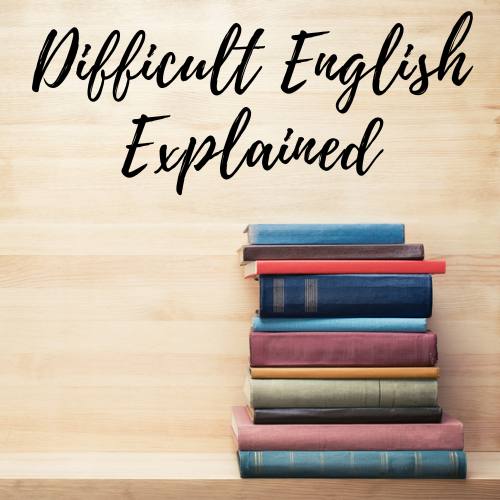“How do I know what ‘get’ means?” I hear this question from my students regularly. I understand their confusion. If you look up “get” in a dictionary, you might see anywhere from 10 to 20 definitions. That is really scary. However, I have some good news. There is a much easier way to remember how […]
Tag: English vocabulary
How Do I Use the Word “Since?”
If you find yourself confused about how to use the word “since,” you are not alone. “Since” can be a preposition, a subordinating conjunction, or an adverb. That’s three different lexical categories! There is some overlap between the meanings of the different forms of “since,” but there are some definite differences. “Since” as a Preposition […]
What is the Difference between “dis-” and “mis-”? — Making Negative Words in English
If you want to improve your vocabulary in English, one of the best things you can do is to study the most common prefixes and suffixes for English words. Knowing what they mean will not only help you to remember more words, but it will also give you the ability to guess the meanings of […]
What is the Difference between “un-” and “non-”? — Making Negative Words in English
If you want to improve your vocabulary in English, one of the best things you can do is to study the most common prefixes and suffixes for English words. Knowing what they mean will not only help you to remember more words, but it will also give you the ability to guess the meanings of […]
Adjectives that end with “-y”
Today I want to talk about a particular group of English adjectives. These adjectives end with the suffix “-y”, which is pronounced like /i/. The “-y” suffix can change nouns and verbs into adjectives. For example, if we take the noun “dirt” and add “–y” to the end, we get the adjective “dirty.” If we […]
